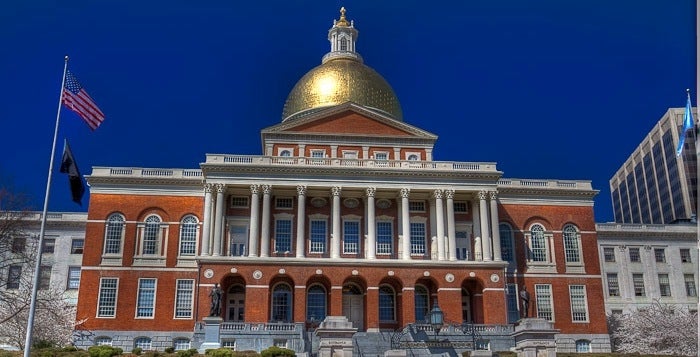Gov. Charlie Baker and the Democratic leaders of the House and Senate have had conversations about finding a legislative solution to avert a ballot question that would put limits on prices health care providers can charge for comparable services.
“It’s possible, but that would have to happen pretty quickly,” Baker told reporters after meeting with House Speaker Robert DeLeo and Senate President Stanley Rosenberg.
Lawmakers have until early July to try to strike a compromise before advocates would be required to decide whether to turn in the required signatures and proceed to the ballot.
Several proposed ballot questions, including ones to legalize marijuana and regulate health care provider pricing, had hearings before legislative committees last week.
While Baker, DeLeo and many lawmakers oppose legalizing recreational marijuana, other citizen proposed ballot questions are getting more consideration in the Legislature.
Baker noted efforts in the Senate to craft a bill concerning charter schools that could satisfy advocates’ desire to lift the cap on charter school enrollment, and then acknowledged that the three leaders had also discussed hospital pricing.
“The timeframe here is getting fairly short. First of all, that’s a complicated issue and secondly just the collection of the data that’s involved, there’s a lot out there but it’s not really organized in a way that would make it most useful for that kind of conversation,” Baker said.
Asked if he supported the ballot question, which would impose a floor and a ceiling on negotiated provider prices to level the playing field between high-priced teaching hospitals and community hospitals, Baker said, “That’s one I would rather see us figure out how to do something with administratively or legislatively as opposed to doing it through the ballot.”
Despite opposition from the Massachusetts Hospital Association, some hospital leaders, patient advocates and workers urged the Health Care Financing Committee last week to take action, and said they would be willing to work cooperatively toward a compromise.
Last September, Baker voiced skepticism of price regulation.
“There are very few examples that I can find anywhere of where price regulation has worked as well as full-blown transparency. You want to create pressure on people to solve a price problem, throw a little sunshine on it. That’ll move it a lot faster and a lot farther,” he said.
Ballot question supporters say that while community hospitals struggle, teaching hospitals are regularly charging significantly more for comparable services.
Supporters say the ballot question, modeled in part off of a bill filed by Sen. Benjamin Downing of Pittsfield, could wring almost $267 million in spending out of the health care system while lowering payments to high cost providers by $463 million and putting $196 million back into community hospitals and hospitals that serve a large volume of low-income patients on Medicaid and Medicare.

